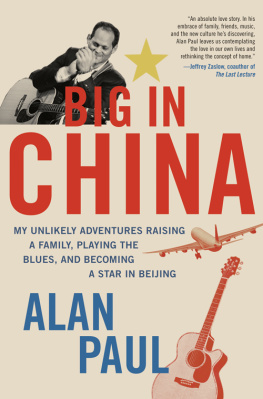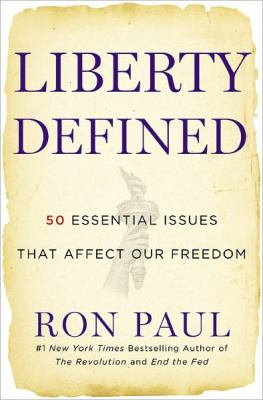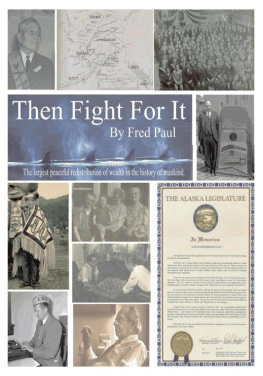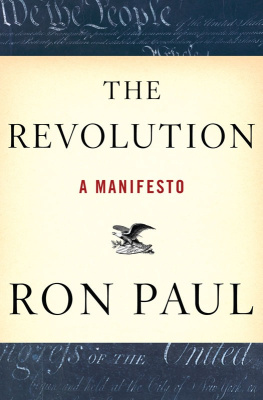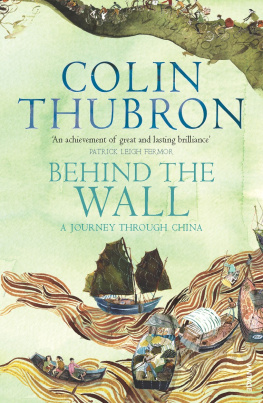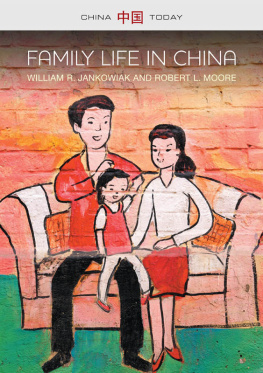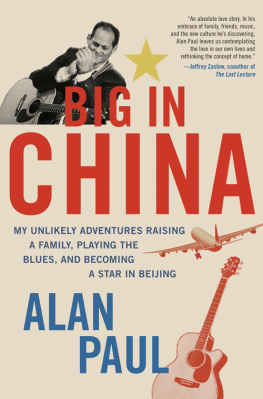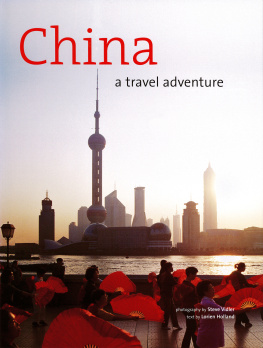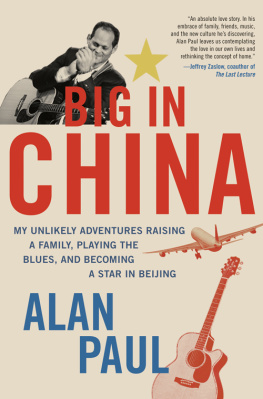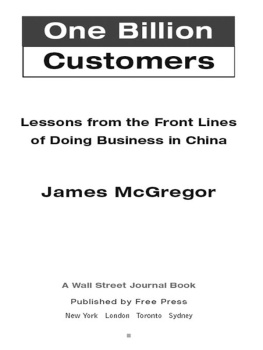Big in China
My Unlikely Adventures Raising a Family, Playing the Blues, and Becoming a Star in Beijing
Alan Paul

Dedication
To Becky
S ome conversations and events have been condensed, but all quotes and names are real, with the exception of Yechen. This was my Chinese teachers nickname, and how he asked to be identified.
The RMB-to-dollar exchange rate varied from roughly 8:1 when we arrived in Beijing to about 6.7:1 when we departed. I used 7:1 throughout the book.
I used Chinas standard pinyin romanization method of spelling.
Contents
Come to the Edge
Thats What Love Will Make You Do
Across the Great Divide
Beautiful Sorta
Say What?
Key to the Highway
When You Feel It, You Know
Into the Great Wide Open
Sad and Deep as You
No Particular Place to Go
Lonesome and a Long Way from Home
Cant Lose What You Never Had
Cast Off All My Fears
Let It Grow
Visible Man
Into the Mystic
Bringing It All Back Home
Bit by Bit (Little by Little)
Them Changes
I Will Dare
Teach Your Children
The House Is Rocking
You Aint Going Nowhere
Giant Steps
Come and Go Blues
Mountain High, River Deep
Beijing Blues
Games People Play
Big in China
Bittersweet Surrender
Tick Tock
Baby Please Dont Go
Tomorrow Never Knows
I Shall Return
X IAMEN, CHINAI stood in the spotlight at the center of the broad stage, feeling exposed and alone. My bandmates, who were usually by my side, were several steps behind, leaving the eyes of five thousand Chinese people solely upon me. They were ready to be wowed.
My band, Woodie Alan, was headlining the Xiamen Beach Festival, a big deal in this beautiful southern China port city. The MC had just announced us, in Mandarin, to the sprawling crowd as Beijings best band. It was a title we had earned in a magazine readers poll a few months earlier and that we were now confronted with validating.
Smoke and bubble machines surrounded us, along with a five-camera TV crew who was filming the performance for broadcast throughout Fujian Province, home to forty-four million people. A kneeling cameraman pointed his lens at my face, which was illuminated by a blinding bank of spotlights. I blinked into the glare and felt my legs wobble and my throat grow tight.
I stepped to the mic, apologized for my bad Chinese, and gave a short, rambling thank-you: I am American. My friends are Chinese. Together, we are one band. We believe that with music, there is one people; no Americans, no Chinese, no Xiameners or Beijingers; just people.
I knew it was a cheap trickChinese people love hearing foreigners speak their languagebut I wanted to make the effort to reach out, and I truly believed the sentiments, even if I could only express them in a string of half-formed clichs.
The loud cheer calmed me as the rhythm section kicked off a hard-driving beat. I shut my eyes and laid into the haunting, slinky opening riff of Beijing Blues, one of the first songs I ever wrote and now our signature tune. The crowd responded, though most of them could not understand a word I was singingsomething that always gave me a proud sense of transcending language with emotion and music.
Fifty minutes and eight songs later we walked off to applause and met on the side of the stage, exchanging hugs and handshakes, and then sharing a warm Tsingtao beer. I poured from one large green bottle into four tiny plastic cups, which we hoisted together in a toast to our success.
It was a scene I never could have envisioned three years earlier, when my wife and I walked off a plane in Beijing with three little kids in tow. I didnt speak a word of Chinese, knew little about the country or the expatriate life I was embarking upon, and had never been in a real band despite years of playing guitar. Now here I was fronting a band with three fantastic Chinese musicians as the headline act of this festival.
Following our impromptu backstage celebration, my lone American bandmate, Dave Loevinger, and I rejoined our families, who had proudly watched our performance from the front row. Fans surrounded us asking for autographs and wanting to pose for pictures together. A giant festival poster we had autographed earlier that day loomed behind us.
File this under, Never thought it would happen, said Dave. We were standing next to a smiling woman holding her fingers up in a V, the sign virtually every Chinese person flashes when being photographed.
Over the next few days on our continuing tour of south-central China, we would do four radio interviews, perform live on the air on the largest station in Hunan Province, sign life-sized posters, and have drunken Chinese mobsters insist on sharing their cognac and Cuban cigars as thanks for our music.
I smiled for the picture, then turned to look out over the exiting crowd on the moonlit beach, the Taiwan Straits stretching behind the stage. Waves crashed onto the shore where Chinese lanterns had gently floated out to sea earlier that evening in a celebration of the fall festival.
I took it all in and wondered just how I had gotten here.
Come to the Edge
T hree years earlier, Id looked at my wife, Rebecca, through feverish eyes, cold sweat plastered over my forehead, and told her that I wasnt quite ready to sign on the dotted line. I couldnt agree to pack up our three kids, abandon life in idyllic, leafy Maplewood, New Jersey, and move to Beijing. Not just now.
I shifted in my sweat-soaked coach-class seat and put down the book I couldnt focus on anyhow. I struggled to explain why I was hesitating. Im not sure this whole thing is such a good idea. I need more time to think.
We were thirty-five thousand feet up, in the middle of a fourteen-hour flight back to the United States from a weeklong look-see visit to Beijing, undertaken to decide whether Rebecca would accept the job as the Wall Street Journal s China bureau chief. I had pushed her to explore this opportunity and I was extremely enthusiastic about it all week, loving everything about China: the energy, the culture, the sites, and the food. Even the pea-soup pollution didnt give me second thoughts. Within two days we were both ready for her to accept the job.
We started taking pictures to show our three kids: Jacob, seven; Eli, four; and Anna, twenty-one months. We wanted China to look like a fun, inviting place rather than a scary, exotic destination so we visited parks, playgrounds, their future school, our house-to-be, and perhaps the worlds largest ball pit at the wonderfully named Fundazzle play space.
Now I was having second thoughts, my wavering triggered by the very thing that had fueled my fervor: food. I had eaten my way through Beijing, throwing caution to the wind once I realized just how differentand how much betterthe cuisine in Beijing was compared with any other Chinese food I had ever tried. I wolfed down bowls of wide handmade noodles, meat pancakes, dozens of dumplings, crispy Peking duck, fiery Sichuan beef sliced thin and dunked in a tableside bowl of scorching oil, and huge, earthy wild mushrooms sauted with giant heads of garlic and hot peppers. I loved it alluntil it caught up with me.
I spent my last two days in China mostly lying on my hotel bed, running back and forth to the bathroom and dispatching Rebecca to scrounge for Imodium. My diet was reduced to dry toast and tea.
I didnt feel much better on the long march home. I was drenched in sweat, clutching my armrests and sucking down sodas as fast as the flight attendant could bring them. Moving to Beijing suddenly seemed like a very stupid idea.
Next page
